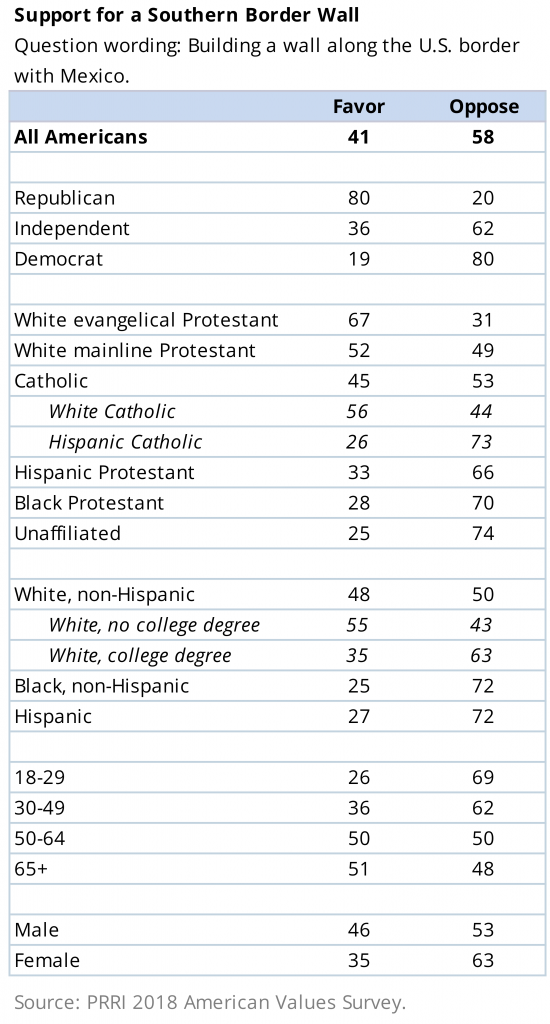I’ve been thinking about white evangelical support for Trump’s wall. Did you know that support for Trump’s wall is higher among white evangelicals than among any other religious group? In a PRRI poll conducted last fall, 67% of white evangelicals voiced support for the Trump’s wall.
Have a look:

Throughout the Bible, God commands his people to welcome refugees. Comb the Bible from end to end and you’re not going to find anything there justifying the white evangelical position on immigration today.
What’s going on here? My guess is that white evangelicals are more supportive of Trump’s wall than other religious groups because they are more Republican than other religious groups. Evangelicals’ views of Trump’s wall, in other words, are shaped not by their religious beliefs but by their political beliefs.
White evangelicals have long melded their religious beliefs with right-wing politics. This was true even before the “culture wars” began in the 1970s; in the 1950s, Billy Graham melded evangelical religious beliefs with right-wing anti-Communist politics. That alliance between white evangelicalism and far-right politics never ended.
White evangelicals’ opposition to refugees, their support for the wall, their support of a Muslim ban—all of these things suggest that their political beliefs have a greater influence over their positions than do their religious beliefs. Even their opposition to the Affordable Care Act is about politics, and not about religion.
This reality is … awkward.
I grew up in an evangelical home. In evangelical circles, every act, every thought, is to be guided by one’s relationship with Jesus. Evangelical faith is supposed to encompass all of one’s life. This is the idea behind the “WWJD” bracelets of the 1990s—every decision an evangelical makes is to be guided by the question “What Would Jesus Do?”
This includes politics, by the way. I remember hearing preached from the pulpit that our votes should be guided by our moral beliefs—our religious beliefs—and not by our pocketbook—or our political affiliation.
For many white evangelicals today, religious beliefs have taken second seat to right-wing political ties. It’s not that this is new, of course. I suspect that it’s been this way for a while. It’s just that the tension between religious belief and political position has been thrown into especially stark relief over the past decade, as issues like healthcare and asylum seekers have eclipsed issues like marriage equality and the war on terror.
I have a Patreon! Please support my writing!















